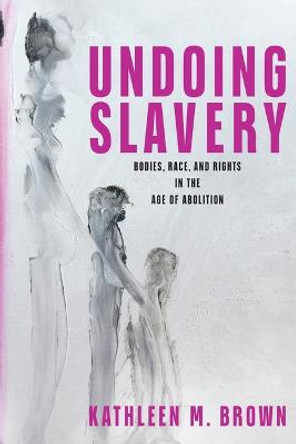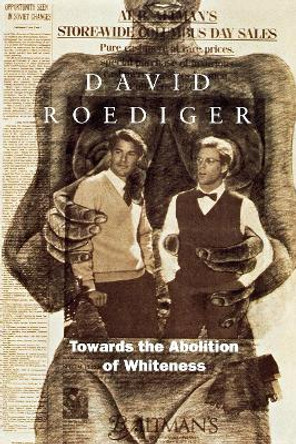Description
About the Author
Katherine Paugh is Associate Professor of History at the University of Oxford. Her research interests encompass the history of race and gender, the history of medicine, and the politics of childbearing. She has been selected for over a dozen grants and fellowships that support outstanding research, including awards from the Huntington Library and the Harvard International Seminar on the History of the Atlantic World. Her work has appeared in journals including the Bulletin of the History of Medicine, Past & Present, and Slavery & Abolition. In 2014, she was awarded the Berkshire Conference of Women Historians Article Prize.
Reviews
Katherine Paugh's The Politics of Reproduction is among the finest examples of Political History fully engaged with the analytics of race, gender, and power in the Atlantic world. By centring debates around the reproductive capacities of enslaved women in the British colonies during the age of abolition, Paugh offers crucial insight into the processes by which British politicians worked to capture the labour power of plantation economies and bolster their link to global capital. This is a must read for anyone interested in the history of the black Atlantic, of slavery and abolition, and of the reproductive lives of Afro-Caribbean women. * Jennifer L. Morgan, New York University *
One of the best books on slavery, medicine, and sexuality in a long time. Intellectual historians will appreciate Paugh's careful, nuanced, and detailed attention to the logics behind the politics of reproduction, particularly to the ways she unpacks the medical, religious, and economic ideas that shaped the words of policy makers. Social historians will readily draw upon chapters which take on the microhistories of enslaved women as they were affected by, responded to, resisted, and moulded new reproductive regimes. Those concerned with ongoing debates regarding capitalism and slavery will find much to like in a history as attentive to material conditions as it is to discourse, one that makes abundantly clear the ways that Abolitionism worked to harness and commodify the tangible, material, productive powers on Afro-Caribbean womens bodies to the tasks of capital. * Suman Seth, Cornell University *
[A] Superb work of Atlantic history... Paugh successfully weaves together the social history of plantation life in Barbados and elsewhere with the political and intellectual history of the slavery debates in a way that few historians have managed... This is a major contribution to the study of slavery as practice, experience, and politics. * Diana Paton, Slavery & Abolition *
This is an important book that should be read by students and scholars interested in the history of slavery and abolition, British imperial history, and Caribbean/Atlantic history, and women's history... summing up: Highly recommended. * CHOICE *
The strength of Paugh's study lies in her constant ideological contextualization in time and space of the politics of reproduction that took place in British Caribbean plantation societies. * Alix Riviere, Tulane University, New West Indian Guide *
Contemporary demographers will find in The Politics of Reproductionan insightful early study of the difficulties states encounter when attempting to legislate a reproduction regime that meets the needs of their production regime. * Population and Development Review *
The Politics of Reproduction is an interesting and multifaceted book, linking discussion of the parliamentary politics of the abolition debates with aspects of Caribbean social history ... This study therefore adds some valuable new perspectives to our understanding of the struggles over slavery and abolition in the British empire, but it is also certain to fuel ongoing debates about those struggles and their wider significance. * Christer Petley, History *
Book Information
ISBN 9780192863928
Author Katherine Paugh
Format Paperback
Page Count 288
Imprint Oxford University Press
Publisher Oxford University Press
Dimensions(mm) 233mm * 153mm * 15mm




